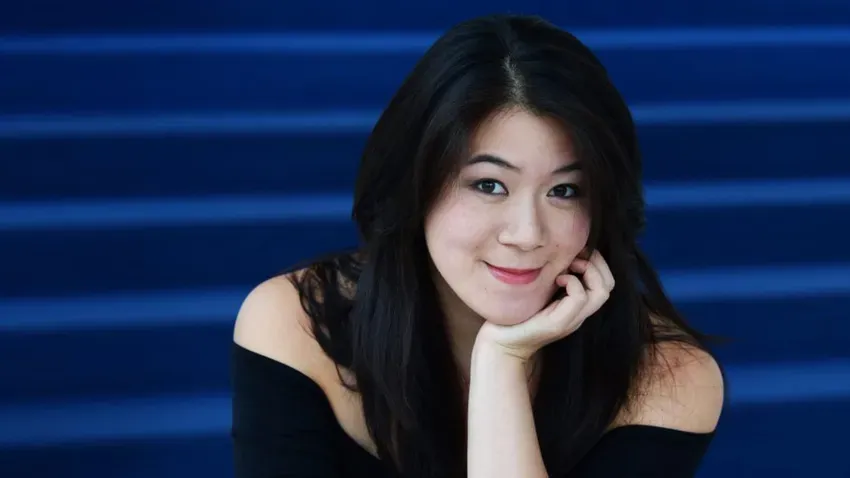Seattle Opera premiered "Karen Vuong in Recital" on May 7. The event, available online through May 28, features soprano Vuong accompanied by pianist David McDade performing art music including works by Debussy, Strauss, and Puccini.
Vuong's performance is shaped around themes of healing and reuniting with loved ones. Recorded in February, her six selections express much-needed sentiments as we look toward the future after more than a year in quarantine. These pieces, dating from the Romantic to the contemporary era and originating in four countries, showcase her measured power as a vocalist.
"The Red Dress" by Ricky Ian Gordon (1995)
Vuong's rendition of "The Red Dress" brings a dream of a red gown to the stage with hopeful energy. Her gentle soprano voice paired with Dorothy Parker's poignant lyricism tells a familiar narrative of longing and growing up.
"Chanson Triste" by Henri Duparc (1868)
In "Chanson Triste," Vuong's voice is full of love. Her phrasing brings vivid imagery to the lyrical content and suggests healing through love with its somber yet hopeful narrative.
"Apparition" by Claude Debussy (1884)
Vuong's performance of "Apparition" is particularly moving and displays her vocal control in new ways. She sings in a lower soprano range with a balanced tone, giving controlled impressions of Debussy's sweeping piece. I was especially impressed with how her dynamic control looks and sounds effortless.
"Cäcilie" and "Morgen!" from Op. 27 by Richard Strauss (1894)
Here, Vuong shifts away from impressionism and into German Romantic opera. "Cäcilie" employs a melancholic longing. Its tender dream of "burning kisses" paired with her stage presence begs to be listened to.
Next, "Morgen!" offers hope of reuniting lovers with a slow lied. In a widely performed piece that relies heavily on vocals, sometimes even isolated from piano melody, Vuong's rhythmic control and care are ever-present in her phrasing, which had me holding my breath for each new line especially as it came to a soft close.
"Animal Passion" by Jake Heggie (1997)
In "Animal Passion," Vuong's entire demeanor changes. This piece is full of challenging intervals and syncopated rhythms, which she pushes forward with an unrestrained nature. Her dynamics throughout precipitate a sensuality that matches the passionate lyrics about meeting a lover. With her powerful tone, she clearly does "mean business" as the lyrics suggest.
"Che Tua Madre" by Giacomo Puccini (1904)
With the classic aria "Che Tua Madre," Vuong sings new life into Madame Butterfly more than a century after its debut. Her encore returns to a steadfast expression with strong tone as she delivers the title character's aria. This piece is particularly notable because its Italian composer draws from traditional Japanese motifs. Vuong's dynamic phrasing and tone quality make it a performance to remember.
To watch this recital, visit Seattle Opera's website (www.seattleopera.org),Facebook page, or YouTube channel.


